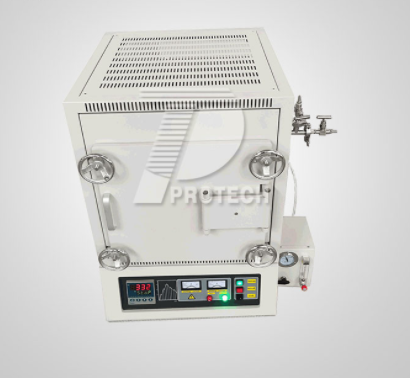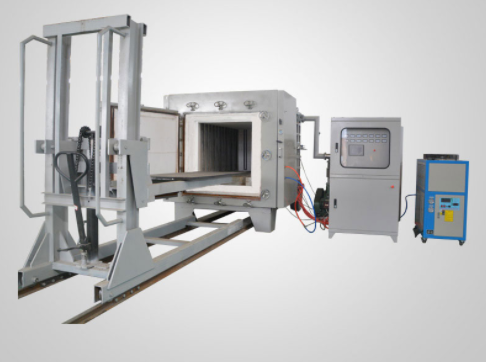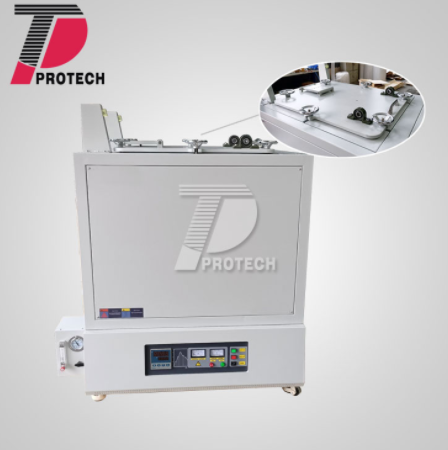

EXPLORE THE NEW TRENDS AND ADVANCED TECHNOLOGIES IN THE HEAT TREATMENT EQUIPMENT INDUSTRY
Ask for a free consultation Ask for technical support

Tel

WhatsApp/WeChat
Contact Us
All products are customizable, leave message immediately, we will reply as soon as possible.
Atmosphere furnace is a heat treatment equipment widely used in fields such as materials science, metallurgy, chemistry, and electronics. It can be heated and heat treated under specific atmospheric conditions (such as protective atmospheres such as nitrogen, argon, inert gases, or reactive atmospheres such as oxygen), thereby avoiding unnecessary reactions between the sample and oxygen or other components in the air. Let's take a look at the main characteristics and application areas of atmosphere furnaces!

A commonly used experimental atmosphere furnace (click on the image to view product details)
1. The main characteristics of an atmosphere furnace:
Accurate control: Atmosphere furnaces are usually equipped with precise temperature control systems that can accurately adjust temperature over a wide range.
Atmosphere protection: Various protective atmospheres can be introduced to prevent sample oxidation or other adverse reactions.
High temperature capability: able to work under high temperature conditions, with a common temperature range from a few hundred degrees Celsius to over 2000 degrees Celsius.
Programmable: Most atmosphere furnaces have programmable functions and can set complex heating and cooling programs according to experimental requirements.
Safety: The design emphasizes safety and is usually equipped with multiple safety protection measures to prevent gas leakage or other hazards.
2. The main applications of atmosphere furnaces:
Material sintering: used for the sintering process of ceramics, metals, and composite materials.
Heat treatment: Annealing, quenching, and tempering treatment of metals and alloys.
Chemical Vapor Deposition (CVD): Used in the electronics and semiconductor industries for the preparation of thin films and coatings.
Synthesis and decomposition reactions: Chemical synthesis and decomposition reactions carried out in specific atmospheres.
Research and Development: Universities and research institutions conduct research on material properties and reaction mechanisms.

Commonly used industrial atmosphere furnaces (click on the image to view product details)
3. Precautions when selecting an atmosphere furnace:
Temperature range: Select an atmosphere furnace that can meet the temperature range required for the experiment.
Atmosphere type: Confirm that the atmosphere furnace can support the required protective or reactive atmosphere.
Size and Capacity: Choose the appropriate furnace size and capacity based on the sample size and quantity.
Control system: Select an atmosphere furnace with a good control system and easy to operate interface.
Safety measures: Ensure that the atmosphere furnace has necessary safety protection functions, such as gas monitoring and leakage alarm systems.

Customized upper door atmosphere furnace (click on the image to view product details)
Atmosphere furnaces play an important role in modern scientific research and industrial production, and their high efficiency and versatility make them commonly used equipment in many fields.Click to learn more Atmosphere Furnace! Or click on online customer service to learn more about product information!